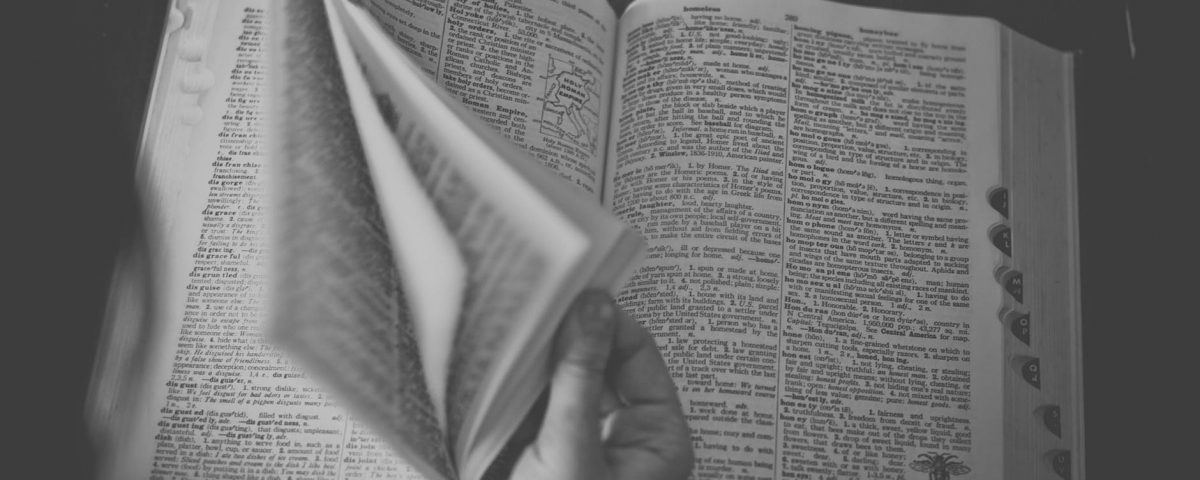
The Loneliness of the Non-Schnitzel Eater
July 5, 2019
Text Through Time
July 5, 2019
‘Tomatoes! This climate is perfect for toma …’
The taxi driver halted mid-sentence as he sped up to overtake a petrol tanker.
‘Bloody Safeway trucks. Shit! Think they own the road… And carrots, beans, radishes, peas. You gotta garden? You grow things?’
‘Rosemary,’ I offered. ‘Coriander, basil. Last year I tried tomatoes but I overwatered. They didn’t take.’
The driver executed another hostile takeover.
‘Jesus!’ Pelvic clench. ‘Where’s the fire? You’ll get us both killed,’
‘Don’t sweat it. I know where the cameras are.’
‘It’s not about— ’ I felt my discomfort escalate. ‘Could you please just keep your eyes on the road.’
‘They’re on the road.’
‘No. They’re not. You keep looking at me.’
‘Looking at you? I’m driving.’
‘Pull over. I’m getting out.’
‘You crazy? It’s the freeway.’
‘I’m not crazy. Pull over.’
‘Okay, okay. So maybe looking a bit — the really dark hair, darker eyes.’
‘Your skin’s darker than mine.’
Jesus! Comments about skin colour? I felt myself flush.
‘True. Name’s Haafiz. What do I call you?’
‘Haafiz!’
‘It’s a good name. Means Guardian. Not Terrorist.’
‘I never said…’
‘You didn’t have to.’
‘Shit, I hardly know you. How can we be arguing?’
‘Jews and Arabs. It’s a thing.’
‘Who says I’m Jewish?’
‘Aren’t you?’
‘I don’t discuss religion.’
‘Look, what if we go back a bit?’
I could tell he was trying to be conciliatory.
‘Press the rewind button,’ he said. ‘Pretend we’re starting over.’
‘Okay. I stand in the queue and hop into someone else’s cab.’
‘You know what I mean. Let’s say I’ve just picked you up from the Qantas terminal and you tell me where you come from.’
I was asked that all the time and hated it. I recognised it as code for what faction — ethnic, religious, racial, cultural, national, tribal — do you belong to?
‘Why d’you want to know? I come from here. Australia. Born and bred. I thought you said we were pressing the rewind button.’
‘Where have you flown in from?’ he asked. Now I thought he sounded resigned.
‘Oh, I… sorry. I’ve just been to Hong Kong.’
‘And?’
‘It’s crazy over there. You think this traffic’s bad? And the pollution, the crowds? There’s hardly room on the footpaths.’
‘And originally?’
‘Originally what?’
‘Where are you from?’
It was still the freeway. Still no escape. I felt another quick flash of antagonism.
‘What’s it to you? You think I sound like a foreigner?’
‘Maybe not, but your parents, I bet they weren’t born here.’
‘Do you interrogate all your passengers?’
‘Only the interesting ones. Me, I was born not far from Nablus. Among the olive groves. I been here 24 years.’
‘Palestine?’
‘So you know geography. Don’t be afraid. The name’s Guardian, remember? No bomb strapped to my chest… Here we go, into the Burnley Tunnel. I like this tunnel, don’t ask me why. It speaks to me. I think good thoughts in here.’
The vibrations between us grew a note or two less atonal: breath and heart, a beat or two less syncopated.
‘Do you know,’ he said, ‘in all the Bibles — Christian, Jewish, Muslim — the olive tree is the holiest of all trees.’
In the warm spring evening, my skin prickled, suddenly cold, and the hair on the back of my neck saluted my scalp.
‘I don’t know about the others,’ I heard a stranger’s voice say from within my own chest, ‘but the Jewish Bible — it definitely mentions olive trees in sacred places.’
‘So you are Jewish,’ he said.
‘You know I am. You knew from the first moment.’
‘Just like you knew what… who I was.’
‘Which makes us enemies.’
I thought I didn’t want to hate him, but wasn’t sure if it was okay not to.
‘Not here; we can’t be enemies in the Lucky Country,’ he objected.
‘But over there, where you blow up teenagers sitting in pizzerias or children in their classrooms?’
‘Where you bulldoze our houses and imprison and torture us for trying to live like human beings?
‘So what’s the tunnel telling you now?’
The two Semites, Levantines, Orientals — I had no idea what we were — sat in the same cab and stared through the same windscreen.
‘Maybe it’s saying there needs to be peace between our people. That there’s been enough killing.’
‘Is that you or the tunnel talking?’
‘Can’t you hear?’
‘I can hear tyres on the road and your engine running, but nothing and no one’s saying, Peace!’
‘That’s because you’ve forgotten how to listen. All your people have forgotten.’
‘Maybe your people aren’t saying anything worth listening to anymore. Maybe all of us are just talking hate-gibberish now. And maybe that’s just what the politicians want, yours and mine.’
‘I don’t understand politics.’ Haafiz’s tone lost some of its anger. ‘Never have. All I know is that you bring up your sons and daughters — for what? All that money to feed them and send them to school. All that energy of the heart to love them and teach them to be good children. For what? So they can die? In the army? On the street when they drink coffee?’
‘Are those tears? Really? You crying now?’
‘Maybe we should both cry.’
‘I cry.’
‘I don’t see any tears.’
‘I do it in private.’
‘You think that makes you holier than me?’
‘No, but sometimes, when I’m watching the news and can’t stand it anymore, I press the mute button. Without language, just with their tears, you can’t tell the difference between Jew and Arab. They look exactly the same.’
‘They don’t look anything like the same. I can always tell the difference. Don’t pretend you can’t.’
The anger was back. It was as though the two of us were standing on opposite sides of an invisible line. Bullets arcing from one side and, from the other, trajectories of rocks and rockets. It was all that connected us.
‘We’re the ones standing in front of houses made of rubble,’ he said. ‘We’re the ones throwing stones at tanks. You’re the ones in the tanks.’
‘I told you. I turn the TV to mute. I can’t bear to hear the sounds.’
‘Of killing? Your killing?’
‘And yours.’
‘I know that once we were brothers and sisters.’
Taxi driver as philosopher-historian, I thought, but found I could not be cynical as I listened to him.
‘I know that when you were expelled from other lands you found safety with us,’ he said. ‘We traded with you in precious stones and fine fabrics and you became our doctors and friends. In the Crusades, our blood was spilt together. When Saladin freed Jerusalem the Holy, it was for your family and mine.’
‘And now we shoot each other over who should own it. Over drek and debris that the rabbis and the imams assure us are holy!’ I shook my head.
‘Rocks aren’t holy. Only people.’
‘It’s enough, Haafiz. I don’t think I can talk about it anymore.’
‘You see, you get tired just talking. Could you live it? Every day?’
‘I don’t know. Look… maybe you could tell me about Nablus.’
‘You want to change the subject?’
‘I really do.’
‘It might not be the story you want to hear.’
‘Tell me anyway.’
As he began to speak, I thought I saw his hands relax on the wheel.
‘Okay, so we were a few of the lucky ones. We managed to hold onto our land. We were seven — five brothers, two sisters — and my father had a big farm. Olives. We looked after many, many trees.’
‘But when you divide a farm by seven…’
‘It’s not like that. The girls only get a half-portion of what the men get and my brothers, they gave the sisters the money. What do girls need with a farm?’
‘Sure. What do girls…’
‘Half. It’s the law. We give them half because it’s the law. Don’t judge me.’
‘I’m not. The law is the law. I get it.’
‘You know, of all my brothers, I am the only bald one. They all stayed on the farm; they use the olive soap.’
‘I’ve used olive soap. It’s lov…’
‘No,’ he shook his head and grimaced. ‘You bought it at the supermarket. It’s not the same. The real thing starts with the groves of trees that can be hundreds of years old. When you walk through them, you can hear their music. Their trunks are wide and gnarly and their leaves are like leather. Then the olives — so green, so bitter — fall to the ground. They fall onto nets spread in the shade and are gathered up by farmers and labourers. Their oil is like silk, deep and green. And when they’re cured with oil or brine and maybe some vinegar for flavour, they’re nothing like you’ve ever tasted, nothing like on supermarket shelves.’
‘The truly rich were always those who enjoyed what they had.’
‘What’s that?’
‘Something my father used to say. He didn’t make it up… Haafiz?’
‘Yes?’
‘I have nephews in the army in Israel. My sister is so proud.’
‘I thought you couldn’t talk about it anymore. Why are you telling me?’
‘You should know. That’s all.’
‘Now I know… Is this your street?’
‘Yes, the sandstone house on the right, after that red car.’
‘Card or cash?’
‘Cash. If I tip you, will you be offended?’
‘If someone offers you soup or money, never refuse either. Something my mother used to say.’
I’m not sure I…’
‘She didn’t make it up, either. Not important… Salaam’
And now SBS World News with Michael Tomalaris…
The Australian Parliament is once again in disarray with yet another prime minister having been ousted from his leadership position. This makes him the seventh federal leader in ten years, causing both houses to call for law reform regarding the ways in which heads of government can be replaced.
‘Hi sweetheart. How was your trip? Sorry I couldn’t make it to the airport.’
As always, his voice soothed me. He took my coat and hung it in the hall closet.
‘No worries,’ I said. ‘It was easy to catch a cab… Hey, did you make this for me?’
‘Yup.’ He looked pleased with himself. ‘Tomatoes, black pepper, basil from the garden, and some balsamic vinegar.’
Today in Tel Aviv two Israeli soldiers and two Palestinians were killed when a bomb exploded in Dizengoff Square. The total number of casualties is yet to be confirmed.
Into the deep salad bowl, I swirled some olive oil through the bright red, green and black ingredients. I ground some white peppercorns over the top. Colours of a flag.
‘Oh God, darling,’ I said. ‘Could you switch it to mute?’



